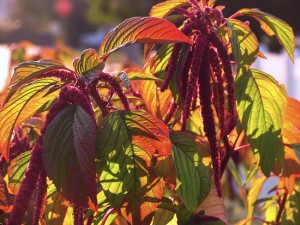Svalbard Global Seed Vault Turns Four
Four years ago this week, researchers opened the “Doomsday Vault” to store frozen seeds in case of disaster
/https://tf-cmsv2-smithsonianmag-media.s3.amazonaws.com/filer/20120229103116vault-470.jpg)
If you ever visit Spitsbergen, Norway, one of the islands of Svalbard archipelago in the Arctic Circle, you might come across coal mines, snowmobile traffic, glaciers, polar bears and reindeer. Or a giant metal box sticking out of a mountain.
Four years ago this week, researchers erected the sturdy, if homely, box called the Svalbard Global Seed Vault, or less formally, the Doomsday Vault, to store a variety of frozen seeds in case of disaster. Nearly 25,000 new samples will be added to the cave this week, bringing the total inventory to more than 740,000 specimens. Covered in rock and permafrost, the vault will stay chilly even if the electricity goes out. It is, its backers say, “the ultimate insurance policy for the world’s food supply.”
Why such a massive hoarding effort? Researchers have long been worried about the loss of crop diversity, for many reasons. All over the world, rapidly changing climates mean that crops that used to be successful may suddenly fail. Similarly, a growing interest in conservation means researchers are trying to find crop varieties that don’t require as much land or damage to natural resources. What’s more, as the global population increases, so does demand for food.

Amaranth, a gluten-free alternative to wheat, is going into the Svalbard Global Seed Vault. Image from Flickr user *daveeza*
Large collections of seeds (in Svalbard and elsewhere), together with living seed gene banks across the world, will help scientists of the future shape new varieties with useful traits, whether that’s stamina in dry spells or plentiful harvests.
The varieties added to Svalbard this week illustrate the wide range of the collection. One is the pretty red amaranth, a high-protein and gluten-free grain that was a favorite of the Aztecs and the Incas. Another, barley from the Pamir Mountains of Tajikistan, thrives in both hot summers and snowy winters. Surprising Science readers may be most familiar with a malting barley grown today the Northwestern United States. The grain, known as Klages, is a popular ingredient in craft beers.